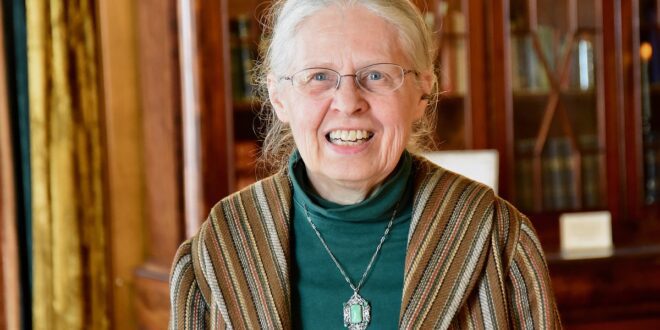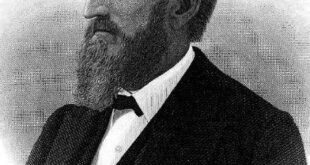Dreaming of Fashion Design
Teresa Knutson had a childhood dream of becoming a fashion designer but discovered her real talents lay in constructing clothing and curating historical fashion.
“When I was a little girl I wanted to be a fashion designer,” she said. “I would design clothes on a blackboard and then I learned to sew — it was always what I wanted to do. As I got older I started to realize that I was better on the craftsman side than I was on the design side. It takes a special sort of person to be a designer, a different type of creativity than to actually craft things.”
She pursued an undergraduate major in costume and textile design, with a minor in museum studies, and then later completed graduate work in costume and textile history. This coursework paved the way for her career and now provides her the knowledge base to serve as a volunteer curator of textiles at the Conrad Mansion in Kalispell.
Volunteer Curator of Textiles
Since 2006, Knutson has been volunteering at the Conrad Mansion where she has inventoried all the clothing and textiles in the collection and cataloged over 250 of the historic garments. Each year, she presents a new historic clothing exhibit featuring 19th and 20th-century fashion, which are displayed on all three floors of the historic home. Pioneer businessman Charles E. Conrad moved his family into the mansion in 1895.
Fashion as a Storytelling Tool
Knutson uses fashion to tell the story of the time period and that of the Conrad family. “Because the Conrads were fairly wealthy, we’re not looking at the history of the working man in Kalispell, but what’s been collected here is the nicer clothing,” she said. “Then occasionally I add in a piece of clothing that may have been worn by a servant say in the laundry room.” The home was donated to the city in 1975 by the youngest Conrad daughter. Knutson praises the collection as containing some pieces that can be traced back to having been worn by members of the Conrad family.
Expertise and Civic Responsibility
For Knutson, there is a civic responsibility to volunteer where you live, and volunteering at the mansion makes sense for her. “I feel like here I can give my expertise on something I like doing that fulfills me and also helps the mansion,” she said. “I always have hoped by doing nice costume exhibits that would help the Conrad mansion because I think the Conrad mansion is a real asset. It’s part of the history of Kalispell, and I think it’s a real asset to the city.”
Preparing for Exhibits
To coincide with the exhibit on clothing worn for recreation and sports between the 1880s and 1970, Knutson is preparing fashion tours that take visitors throughout the mansion, explaining the history of clothing woven together with the history of the era and the Conrad family. She reads and researches extensively to prepare for the exhibits. “I learn so much during the process as I’m figuring out what I’m going to talk about and how I’m going to pull the exhibits together,” she said.
Passion for Costume Exhibits
Knuston has put together exhibits based on fashion trends of certain eras, displayed clothing for holidays like Christmas, and tied the exhibits to modern-day interests as when she put together a show playing off the popularity of the PBS TV show “Downton Abbey.” She constructed mannequins for costume exhibits at various museums, which have showcased her knowledge and skills. Knutson’s passion for costume exhibits stems from her love for the history of fashion.
Features Editor Heidi Desch may be reached at 758-4421 or hdesch@dailyinterlake.com.
 Mind Uncharted Explore. Discover. Learn.
Mind Uncharted Explore. Discover. Learn.





An alternative perspective to the author’s point of view could be that fashion is not an accurate portrayal of history. While clothing can give some insight into the time period in which it was made, it does not always reflect the reality of everyday life for most people. For example, the author mentions that the clothing at the Conrad Mansion is “nicer” than what would be typically worn by working class people. This suggests that the clothing on display is not representative of the majority of people